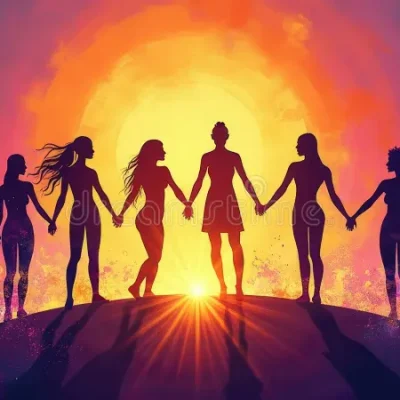Gender inequality: the ignorance of male privilege
No matter how many things are attempted to change the status and the treatment of women, there still are people who have their own opinions on women and what we stand for. Being a woman in this world is so demanding because you have to act or look a certain way for societies standards and even then, people still have their own opinions of you. Men in this world don’t even realize how lucky they are that they are men, because they don’t have to face the disrespect that every woman has to go through.
The idea that men don’t realize their privilege is very relevant because men in every world has been able to do whatever they want no matter where they are because people see them as humans. But on the other side, for centuries women had been told to look or act a certain way because most people have one specific view on women and girls in the world and how they should be.
My issue is that the inequality of men and women has been happening for so long that people just go over it and don’t pay attention to the misogyny. Some manners that most people disagree with that show the different treatment of women is simply just dress code and how they more specifically target girls in school, or how in the workforce most men get paid more than women, or you can even pick how men with kids get told how to get a job done but if a mother is a working mom they get told to just work it out. Even things as simple as walking down the street are different for men and women because most women can’t walk down a street and feel safe unlike women who are going to be followed or get catcalled for something that they are wearing. If more men realized their privilege then maybe more people would listen and empathize with them and make the change of inequality between men and women.
Many people agree with me and have written many articles about topic; specifically targeting women and girls and the inequality between men and women overall.
A article called “Privilege, It is invisible to those who have it’s engaging men in workplace equality” that had a tandem of points that talked about privilege and how people don’t realize that they have it. It also speaks about how men need to stop taking women for granted in their own house because shared housework can help with a lot of things. This article was published on June 7 of 2016, “Privilege comes in a myriad of forms, including race, gender, wealth, physical fitness, safety, and educational attainment and indeed height. However, the people who have those things are usually unaware of their power and influence.” Written by Fiona Smith and posted in The Guardian. This statement is important because it repeats that even if you don’t know that you have privilege it’s best to reflect deeply to see if you posses any. Some people have it the most privilege (cisgendered hetero white men for example) and refuse to believe they even have privilege because they don’t want to be admit to being part of the problem. The same article talks about how shared housework can ultimately help the outcome of their house.” When men share housework and childcare, their children do better at school, they have higher rates of achievement, lower rates of absenteeism, are less likely to be diagnosed with ADHD,”. This shows that the more housework that is shared between men and women in a household that has both is more likely to produce children who can focus better and be in situations that require a lot of work. These are important for this topic because it talks about privilege and how people mostly don’t realize that they have it and how people with children can focus and be in harder situations when they can see the mother and father are splitting chores and that it’s not all up to the mother.
Another article “The Battle Over Dress Code” by The New York Times, talks about dress code and how it’s focused more towards girls and how it’s more of a sexual idea with them.” Boys run afoul of dress codes when they flout authority: “hippies” defying the establishment, “thugs” in saggy pants. For girls, the issue is seductiveness, and that, too, has become politicized, exposing a new generation gap.”(New York Times). This piece shows that dress codes at schools don’t even look at guys’ outfits and that they can wear whatever they want and they won’t get told to change or get told to home as girls would like it says most dress codes would look at a tank top and think sexually about it because it could show something that they think could,” Distract” other students and teachers. In the same piece, it talks more about stores and how some clothing can promote body dysmorphia from a younger age.” Fashions catering to girls emphasize body consciousness at the youngest ages — Gap offers “skinny jeans” for toddlers, Target hawks bikinis for infants.”….” the pressure young women face to view their bodies as the objects of others’ desires”. This piece expresses that dress codes in real life target older women and younger girls to have body dysmorphia and make people think differently of them because the clothes that people are selling are more revealing and tight clothing items that show more than they should for younger girls. The more that these clothing stores are selling these items the more that girls are going to get started and the more that they are going to feel conscious about their bodies and start caring more about what people especially men,who have to say about their bodies. The promotion of body dysmorphia isn’t shown to the eye of anyone who can’t relate or hasn’t gone through it, so the branding of tight and revealing girls’ clothing makes girls think that they have to look a certain way to fit and feel good in every single item. These pieces of evidence express that girls in school are the ones who get dress coded because all of the clothing that is made for them is made sexually meaning tight and revealing and because of that more people believe that they have the right to have an opinion on something that doesn’t revolve them because they are the teachers or just people on the street that see something that “distracts” them and they don’t like it, but in reality, the only people who get to have an opinion is the person who is wearing the clothing.
While many people believe that this isn’t important because it would be the girl’s or women’s fault if something happened because they were the ones who chose the outfit that they put on. Even if they are comfortable people would still blame them if something was said or if something happened. Also I feel like people truly believe that men are superior to women and that men do more work so they deserve more. This is very incorrect because everyone should be equal no matter their gender, and for the most part, women who are mothers work harder than men do because they also have to make money while taking care of their kids, so no one is superior to anyone and everyone should be treated the same no matter the circumstance.
My whole point is that people need to realize that no matter who you are you should be able to be treated the same and work the same jobs, and wear the same things. Also, the fact that if men who had the most privilege realized that they had it and used it for the better of things so then things could change for the better, and women can be able to be something.Also making it known about the dress code and how sexist it is and why people in schools need to change their perspective.









